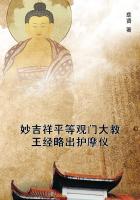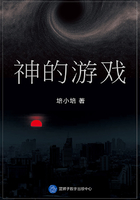And as it throws a peculiar charm over every action which proceeds from it, so the want of it adds a peculiar deformity to actions indicative of disregard to the happiness of others. Our sense too of the merit of any action is just so far increased or diminished according as we find that benevolence was or was not the motive of the action. If, for instance, an act supposed to proceed from gratitude is found to proceed from the hope of some fresh favour, all its merit is gone; and so if an action attributed to a selfish motive is found to have been due to a benevolent one, our sense of its merit is all the more enhanced. And lastly, in all disputes concerning the rectitude of conduct, the public good, or the tendency of actions to promote the general welfare, has always been the standard of reference, that being accounted morally good which tends to promote happiness, and that bad or wrong which tends to the contrary result.
These reasons led Hutcheson to the conclusion, that an act was meritorious in proportion to the benevolence evidenced by it; hence that the virtue of an action was proportioned to the extent of happiness it tended to promote, so that the least virtuous affection was that which aimed no further than at the happiness of an individual, as a son, a brother, or a friend, whilst the most virtuous was one which embraced as its object the happiness of all intelligent beings. The perfection of virtue consisted therefore in directing all our actions to promote the greatest possible good, and in subjecting all inferior affections to the desire of the general happiness of mankind.
The first defect which Adam Smith finds in this theory of his former teacher is, that it fails to explain sufficiently our approbation of the inferior virtues of prudence, temperance, constancy, and firmness. Just as other theories erred in regarding solely the propriety or impropriety of conduct, and in disregarding its good or bad tendency, so this system erred by disregarding altogether the suitableness of affections to their exciting cause, and attending only their beneficient or hurtful effects.
In the second place, a selfish motive is not always a bad one. Self-love may often be a virtuous motive to action. Every man is by nature first and principally recommended to his own care; and because he is fitter to take care of himself than of any other person, it is right .that he should do so. Regard to our own private happiness and interest may constitute very laudable motives of action. The habits of economy, industry, discretion, attention, and application of thought, though cultivated from self-interested motives, are nevertheless praiseworthy qualities, and deserve the esteem and approbation of everybody. On the other hand, carelessness and want of economy are universally disapproved of, not as proceeding from a want of benevolence, but from a want of a proper attention to the objects of self-interest.
And as to the standard of right and wrong being frequently the tendency of conduct to the welfare or disorder of society, it does not follow that a regard to society should be the sole virtuous motive of action, but only that in any competition it ought to cast the balance against all other motives.
It was, again, a general defect of each of the three theories which defined virtue as propriety, prudence, or benevolence, that they tended to give a bias to the mind to some principles of action beyond the proportion that is due to them. Thus the ancient systems, which placed virtue in propriety, insisted little on the soft and gentle virtues, rather regarding them as weaknesses to be expunged from the breast, while they laid chief stress on the graver virtues of self-command, fortitude, and courage. And the benevolent system, while encouraging the milder virtues in the highest degree, went so far as to deny the name of virtue to the more respectable qualities of the mind, calling them merely "moral abilities," unworthy of the approbation bestowed on real virtue. Nevertheless the general tendency of each of these systems was to encourage the best and most laudable habits of the mind, and it were well for society if mankind regulated their conduct by the precepts of any one of them.
This general good tendency of these three theories leads our author to classify by itself, and to treat in a distinct chapter, a system which, he says, destroys altogether the distinction between virtue and vice, and of which the tendency consequently is wholly pernicious, and that is the system, which he designates as the Licentious System, expounded by Mandeville in the Fable of the Bees .
Adam Smith considers that this system," which once made so much noise in the world could never have imposed upon so great a number of persons, nor have occasioned so general alarm among those who are the friends of better principles, had it not in some respects bordered upon the truth."Mandevilles famous definition of the moral virtues as "the political offspring which flattery begot upon pride," was based on the assumption that morality was not natural to man, but was the invention of wise men, who, by giving the title of noble to persons capable of self-denial and of preferring the public interest to their own, won mankind generally, through this subtle flattery, to what they chose to denominate virtue.















